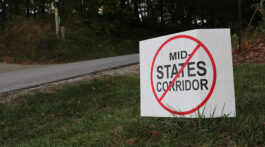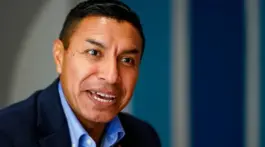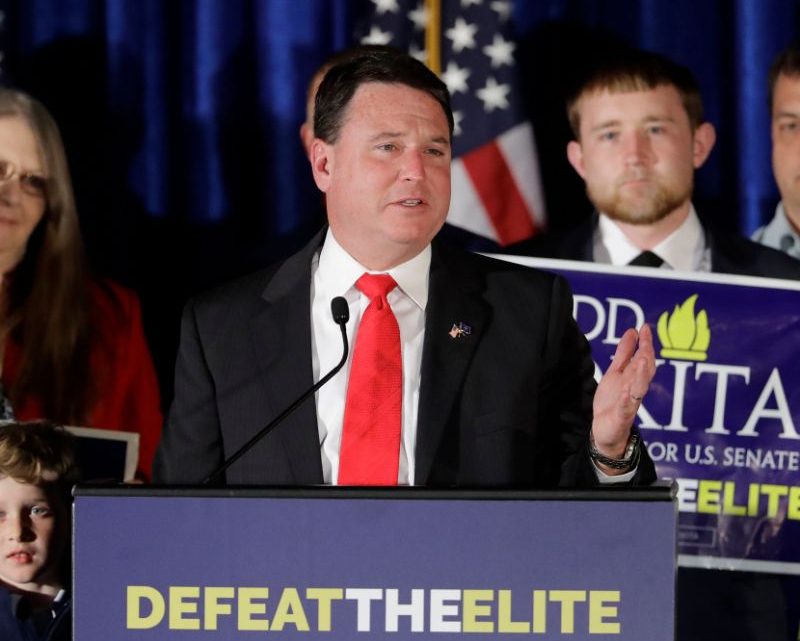The Indiana Supreme Court has denied a motion by Attorney General Todd Rokita to dismiss a second disciplinary complaint stemming from his public comments following a prior reprimand related to his office’s investigation of Dr. Caitlin Bernard.
In a unanimous decision issued July 18, the Court ruled that Rokita must respond to the Indiana Disciplinary Commission’s latest allegations that he made public statements contradicting his prior admission of misconduct and acceptance of responsibility. The Commission argues that these comments demonstrate Rokita was not truthful when he previously told the Court he accepted responsibility for violating professional conduct rules.
The original complaint, filed in 2023, alleged that Rokita made public comments that could prejudice an investigation and improperly targeted Dr. Bernard, who provided abortion services to a 10-year-old rape victim from Ohio. That case concluded with a public reprimand following a conditional agreement in which Rokita admitted to violating professional rules governing extrajudicial statements and conduct intended to embarrass or burden another party. As part of that agreement, a third charge related to confidentiality was dropped, and Rokita submitted a sworn affidavit stating that he accepted responsibility and could not successfully defend against the charges.
Following the reprimand, however, Rokita issued a press release and gave public interviews in which he asserted that he had done nothing wrong, had not violated any laws, and had only agreed to the reprimand to save taxpayer resources. The Disciplinary Commission contends these remarks are inconsistent with the admissions made under oath and constitute a separate violation of professional rules requiring truthfulness before the Court.
In its ruling, the Supreme Court emphasized that while motions to dismiss are rarely granted in attorney discipline cases, Rokita’s legal and constitutional arguments are more appropriately addressed during a full disciplinary hearing. The Court stated that the question of whether Rokita’s statements to the public contradict his earlier sworn affidavit is a factual issue that should be resolved through the hearing process, not at the preliminary stage.
“While he raises legal issues, they are intertwined with his defenses to the Commission’s charges,” the Court wrote. “The Commission has not yet had an adequate opportunity to sustain its burden to prove by clear and convincing evidence… that Respondent violated the Rules of Professional Conduct.”
To help ensure public confidence in the fairness and impartiality of the proceedings, the Court took the unusual step of appointing a three-member hearing panel rather than a single officer, as is typically the case. The panel will be comprised of Judge Cale J. Bradford, Judge Nancy H. Vaidik, and attorney William G. Hussmann, Jr., representing Indiana’s northern, central, and southern regions, respectively.
The Court also encouraged the panel and the parties to consider whether mediation might help resolve the dispute, noting that the disagreement between the Commission and Rokita appears to be relatively narrow in scope and primarily concerns interpretation of prior statements.
In addition to denying the motion to dismiss, the Court granted the Commission’s request to stay discovery proceedings pending appointment of the hearing panel. All further discovery disputes will be referred to the panel.
Rokita has 30 days from the date of the opinion to file his formal answer to the Commission’s complaint.
This development marks the continuation of a lengthy disciplinary process that has drawn significant public and political attention. According to reports, taxpayers have already paid nearly $500,000 in legal fees related to Rokita’s defense in these matters.
In separate concurring opinions, Justices Slaughter and Goff supported the majority’s decision but expressed different perspectives on procedure. Justice Goff, in particular, emphasized the importance of maintaining the integrity of the disciplinary process in cases involving high-ranking public officials, stating that a panel review would help foster public confidence in the outcome.
The case will proceed through the hearing phase in accordance with Indiana Admission and Discipline Rule 23











